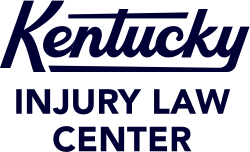Truck accidents can result in devastating injuries, often leaving victims with long-term physical, emotional, and financial consequences. Understanding the potential injuries you may suffer in a truck accident is crucial for protecting your rights and seeking appropriate compensation. In this blog post, we will discuss the most common injuries resulting from truck accidents and provide essential tips to help you navigate the aftermath.
Head Injuries:
Truck accidents can lead to severe head injuries, including concussions, traumatic brain injuries (TBIs), and skull fractures. These injuries can have long-lasting effects on cognitive function and overall quality of life. If you experience any head trauma after a truck accident, seek immediate medical attention and follow up with a qualified healthcare professional.
Tip: Document any head injuries and their symptoms thoroughly, as they can serve as valuable evidence in your workers' compensation claim.
Spinal Cord Injuries:
Truck accidents often result in spinal cord injuries, which can cause paralysis or partial loss of movement and sensation. These injuries can have a profound impact on your ability to work and perform daily activities. If you or a loved one suffer a spinal cord injury in a truck accident, consult with an experienced attorney to understand your legal options.
Tip: Keep a record of all medical treatments, therapies, and rehabilitation sessions related to your spinal cord injury. These records can support your claim for compensation.
Internal Organ Damage:
The force of a truck collision can cause significant internal injuries, such as organ damage or internal bleeding. These injuries may not be immediately apparent, so it's crucial to seek medical attention after an accident, even if you feel fine initially. Prompt diagnosis and treatment are essential for preventing further complications.
Tip: If you suspect internal injuries, inform your healthcare provider and request appropriate diagnostic tests, such as CT scans or ultrasounds.
Bone Fractures:
Truck accidents can result in severe bone fractures, ranging from simple fractures to complex compound fractures. These injuries often require extensive medical intervention, including surgeries, rehabilitation, and prolonged recovery periods. Proper documentation of your fractures and their impact on your daily life is crucial for building a strong workers' compensation claim.
Tip: Follow your healthcare provider's instructions diligently and attend all follow-up appointments to ensure the best possible outcome for your fracture recovery.
Psychological Trauma:
Truck accidents can have a significant psychological impact, leading to conditions such as post-traumatic stress disorder (PTSD), anxiety, and depression. These emotional injuries are just as valid as physical injuries and may require therapy or counseling to overcome. Seek professional help if you experience any psychological distress following a truck accident.
Tip: Keep a journal documenting your emotional struggles, as this can serve as evidence of the psychological trauma you have endured.
Truck accidents can cause a wide range of injuries, each with its own set of challenges and implications. Understanding the potential injuries and taking appropriate steps to protect your rights after an accident is crucial. If you or a loved one have been injured in a truck accident, it's essential to consult with an experienced workers' compensation attorney who can guide you through the complex legal process.
At Kentucky Injury Law Center, we specialize in helping truck accident victims navigate the intricacies of workers' compensation claims. Contact us today for a consultation to discuss your case and learn how we can fight for the compensation you deserve.

